International
Latin American alert: Imminent risk of a fentanyl crisis?

November 29 |
On the streets, fentanyl is known as “King Ivory”, “White Chiva”, “Tango” or “Murder 8”. This synthetic opioid, which authorities claim is up to 50 times more potent than heroin and 100 times stronger than morphine, has raised red flags in Latin America, raising the possibility of facing its own fentanyl crisis.
Brian Clark, a special agent with the U.S. Drug Enforcement Administration (DEA), describes it as the cause of the most devastating drug crisis in U.S. history. Its ease of manufacture, low cost and high lethality make it a significant threat.
In this context, Lisa Monaco, U.S. Assistant Attorney General, highlights the key feature of fentanyl that contributes to its dangerousness: it is fully synthetic and its supply is potentially unlimited.
The increase in fentanyl seizures in Latin America is alarming, reports InSight Crime. Countries such as Costa Rica, Argentina, Colombia, Panama, Ecuador, Brazil and Venezuela have been affected by this growing trend.
Argentina experienced a significant case last year in which a mixture of cocaine and an extremely strong type of fentanyl resulted in the death of 24 people in 24 hours, according to Candice Welsch, regional representative of the United Nations Office on Drugs and Crime.
Given this scenario, the question arises: Is it imperative for the region to take immediate preventive measures?
Experts highlight the importance of comparing the illicit use of fentanyl between Latin America and other regions, as well as its origin. While in the United States the Sinaloa and Jalisco cartels are responsible for the flow of fentanyl, in South America the problem lies more in the diversion of medical fentanyl into illicit channels, rather than its illegal production, according to Julian Quintero, a researcher at ATS Corporation.
The presence of other synthetic drugs in the region, such as tusi, ecstasy and ketamine, poses an ongoing challenge and could facilitate the expansion of fentanyl in an already receptive market, warns Welsch.
While experts consider it unlikely that illegal fentanyl produced in Mexico will be widely distributed in Latin America, they urge not to underestimate its presence. The region does not have a marked history of opioid use as in the United States, but Quintero notes that the trend in consumption is toward stimulants.
Faced with these challenges, experts emphasize the importance of implementing preventive measures in the region, suggesting strengthening the legislative framework and preparing adequately to face a possible arrival of fentanyl. Expertise in substance testing, supervised consumption rooms and community education are essential tools to mitigate the risks associated with this dangerous substance.
International
Mexico’s president blasts ‘Inhumane’ U.S. migration law
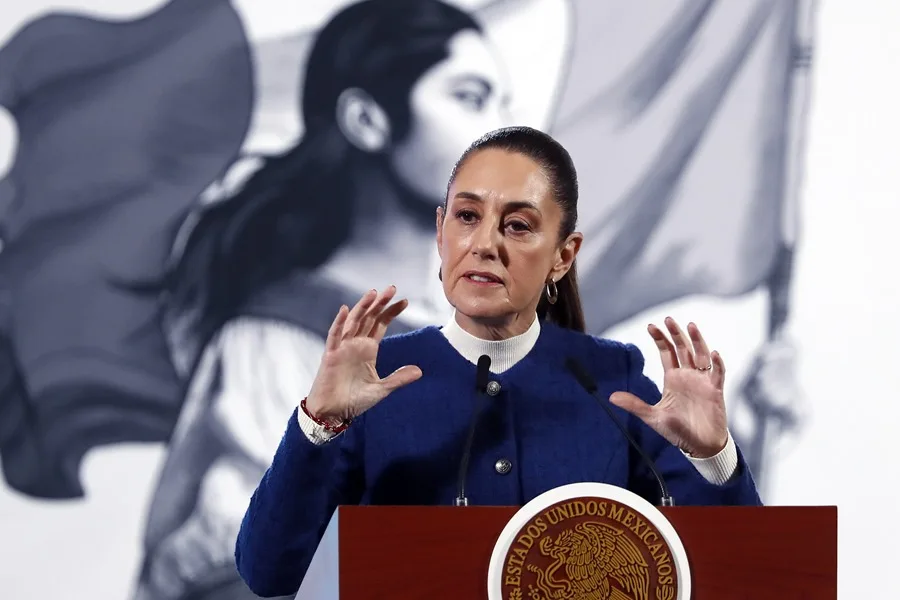
Mexican President Claudia Sheinbaum stated on Friday that any Mexican detained in the United States should be “immediately” returned to Mexico. Her remarks come in the wake of the opening of a new migrant detention center in Florida earlier this week.
Speaking during her daily press conference, known as La Mañanera del Pueblo, Sheinbaum emphasized that so far, no Mexican national has been held in the facility, which has already sparked controversy and has been nicknamed “the Alcatraz of the Alligators.”
She also criticized the new fiscal law signed by former U.S. President Donald Trump, passed by Congress just a day earlier. The law, which Trump dubbed the “great and beautiful tax reform,” includes significant tax cuts and sweeping reductions in public policies, reallocating billions toward national security and defense—including $170 billion to enhance border security, deportations, and the expansion of detention centers.
“We do not agree with a punitive approach to migration. Migration must be addressed through its structural causes, with cooperation for development,” Sheinbaum asserted.
The Mexican president labeled the Trump administration’s view of migrants as criminals as “inhumane,” and warned that such policies ultimately harm the U.S. economy. She pointed to the mass deportation of agricultural workers as an example of how these actions are already backfiring.
“These are hardworking people—people of good will—who contribute more to the U.S. economy than they do to Mexico’s,” Sheinbaum said, announcing that her government will strengthen support programs to ensure that affected migrants can return home safely and reintegrate into the workforce.
International
Julio César Chávez Jr. faces charges in Mexico after U.S. arrest

Mexican President Claudia Sheinbaum announced on Friday that the country is expecting the deportation of boxer Julio César Chávez Jr. so he can face legal proceedings in Mexico, following his arrest in the United States and confirmation by Mexico’s Attorney General’s Office (FGR) of an arrest warrant for organized crime and arms trafficking.
“This is an arrest warrant stemming from an investigation that began in 2019 and was granted by a judge in 2023 (…). We are expecting his deportation so he can serve his sentence in Mexico,” Sheinbaum stated during her daily press briefing.
The president said she was unaware of the case until speaking with Attorney General Alejandro Gertz Manero, who confirmed an investigation linked to organized crime. She also noted that authorities had been unable to execute the warrant earlier because Chávez Jr. had spent most of his time in the United States. “His deportation to Mexico is now being pursued,” she added.
Sheinbaum said there is no confirmed date yet for the boxer’s return to the country, as the process involves “specific protocols” that the FGR is currently handling.
Her statement follows the announcement by U.S. authorities on Thursday of Chávez Jr.’s arrest. The boxer, son of Mexican boxing legend Julio César Chávez, is accused of involvement in organized crime and arms trafficking allegedly tied to the Sinaloa Cartel.
“This Sinaloa Cartel affiliate, wanted for trafficking firearms, ammunition, and explosives, was arrested by U.S. Immigration and Customs Enforcement (ICE),” said Tricia McLaughlin, Deputy Assistant Secretary at the Department of Homeland Security (DHS), in an official statement.
International
Europe faces a summer of heatwaves and wildfires, Red Cross warns
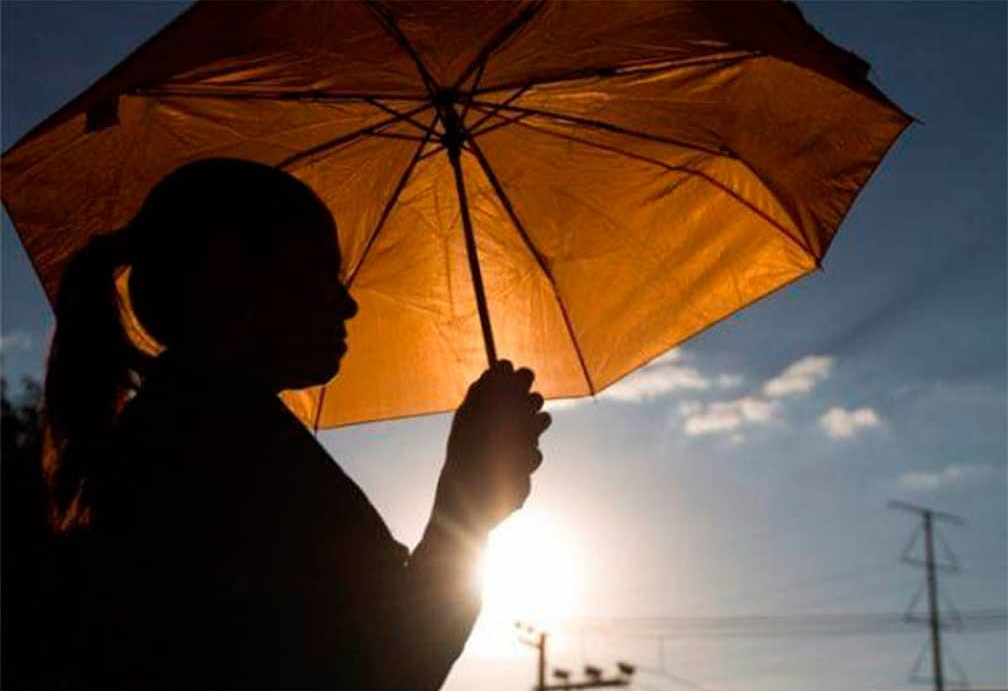
The heatwave sweeping across Europe — accompanied by wildfires in countries such as Greece and Turkey — is “just the beginning” of a summer season expected to see extreme conditions lasting through September, the International Federation of Red Cross and Red Crescent Societies (IFRC) warned.
In a statement, the IFRC stressed the urgent need for governments and communities to shift from a reactive to a preventive approach to safeguard lives.
The organization reported that wildfires in the Turkish region of Izmir, on the country’s western coast, have already claimed at least two lives and forced the evacuation of 50,000 people. Meanwhile, on the Greek island of Crete, around 5,000 residents and tourists have also had to flee due to encroaching fires.
Smaller-scale evacuations and wildfires are also being reported in other countries, including eastern Germany and North Macedonia, with Red Cross volunteers actively involved in firefighting and relief operations.
“Heatwaves and wildfires — increasingly frequent and deadly — are no longer isolated events. They are becoming the new reality for millions,” said Birgitte Bischoff, IFRC’s Regional Director for Europe.
-
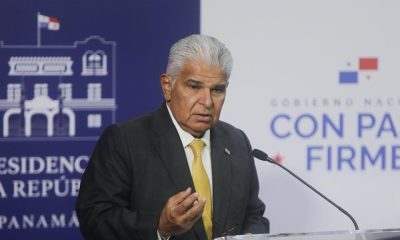
 Central America4 days ago
Central America4 days agoPanama’s President Mulino: “We are regaining international trust” to exit tax haven lists
-

 International2 days ago
International2 days agoJulio César Chávez Jr. faces charges in Mexico after U.S. arrest
-
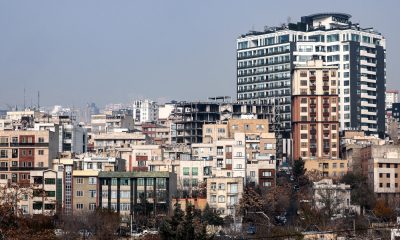
 International3 days ago
International3 days agoTehran airports resume operations as Iran lifts airspace closure
-

 International2 days ago
International2 days agoMexico’s president blasts ‘Inhumane’ U.S. migration law
-

 International4 days ago
International4 days agoTrump to decide soon on deportation exemptions for construction and farm workers
-
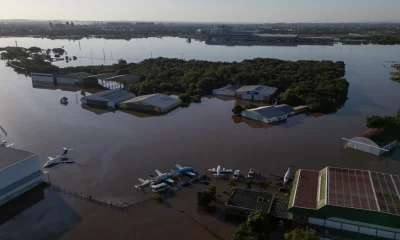
 International4 days ago
International4 days agoIDB plans $11 billion in sustainable financing to support countries facing currency risks
-

 International2 days ago
International2 days agoDenmark takes Trump’s Greenland threats seriously, rules out military annexation
-
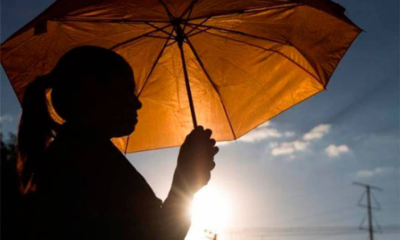
 International2 days ago
International2 days agoEurope faces a summer of heatwaves and wildfires, Red Cross warns
-

 International4 days ago
International4 days agoMaduro’s government appeals to Vatican for help rescuing migrant children
-

 International3 days ago
International3 days agoMan attacks passengers with axe on german ICE Train
-
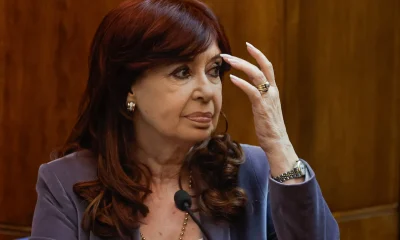
 International4 days ago
International4 days agoFormer argentine president seeks brazilian leader’s visit amid house arrest




















